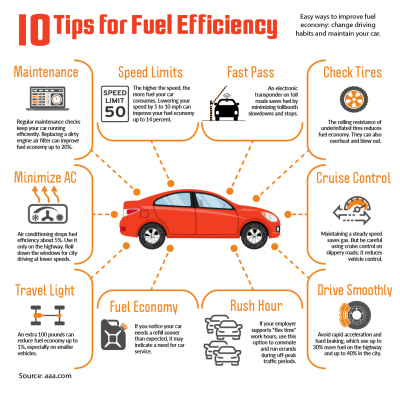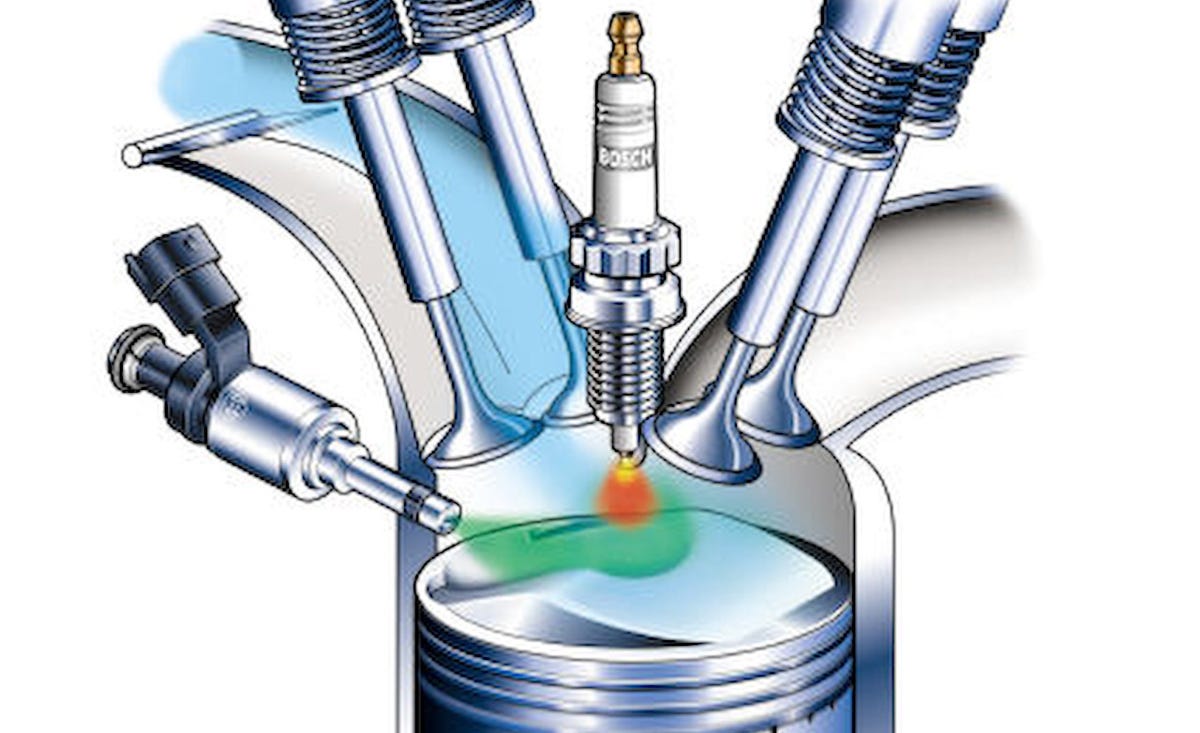Whether your drive is powered by petroleum or electrons, or perhaps a blend of both, the thirstier your vehicle, the more you’re going to fork over at the pump or outlet. If you’ve opted for a fuel-thrifty sedan, kudos on your prudence, but let’s not stop there. A polished driver can squeeze extra miles from each energy drop, altering habits or employing a few secret tricks. Strap in, and let’s submerge ourselves in a quest for more miles per gallon, as we delve into insider tips for maximizing fuel efficiency in sedans.
Table of Contents
Understanding the Basics of Fuel Efficiency

So you’ve got yourself a sedan and you want to maximize its fuel efficiency. Well, before you start tinkering with your vehicle or trying out every trick in the book, let’s break things down to the fundamentals.
First off, what exactly is fuel efficiency? Put simply, it’s the distance your car can travel per unit of fuel, typically measured in miles per gallon (MPG) in the U.S. or kilometers per liter elsewhere. If your car is fuel-efficient, it means relatively little fuel is needed to cover a particular distance. However, if your car is guzzling more than a sports car in a speed chase, well, you’re probably not winning the fuel efficiency race.
The efficiency of your fuel consumption ultimately depends on how your vehicle converts fuel energy into mechanical energy that propels your wheels. Specifically, this plays out in your vehicle’s engine where combustion happens: the magic process where the energy from the fuel is released by burning. More efficient engines do this job using less fuel, while less efficient ones would demand more.
Now, the bad news is newer models often come with more fuel-efficient engines, and if you’re running an older model, there’s really not much you can do to change the engine. The good news, however, is that how you drive and maintain your vehicle could significantly influence your fuel consumption.
One thing that hogs fuel is aggressive driving habits, such as rapid acceleration and excessive speeding. Also, don’t forget that a heavier load requires more energy to move, so carrying unneeded cargo can also weigh on your fuel efficiency.
Now, we’re not saying you should discard your luggage and ride with only a toothpick for the rest of your life. However, understanding these basic principles should make it easier to make more informed decisions about your driving habits and vehicle maintenance routines.
Overall, maximizing fuel efficiency is about striking a balance. You’ve got to manage your vehicle’s inherent fuel consumption rate, your driving habits, maintenance routines, and a whole lot more. But fear not, we’ll guide you through it all, step by step. Buckle up, we’re just getting started.
Driving Habits and Fuel Efficiency

Don’t be fooled into thinking that fuel efficiency is solely dependent on your vehicle’s specifications. It’s not just what your sedan can do, but how you use it. Driving habits assume a key role in the drama of your fuel consumption.
The most basic tip? Avoid sudden acceleration or braking. Imagine you’re driving a glass of water around on your dashboard – you wouldn’t want to spill it. Aggressive driving may be somewhat thrilling, but it’s a villain when it comes to fuel consumption. In fact, studies suggest that erratic driving can download your fuel efficiency by up to 33 percent on the highway.
Speed limits aren’t just there to appease traffic cops, they impact fuel efficiency too. Generally, fuel consumption starts to hastily rise once you cruise past 50 miles per hour. Each additional five mph over this equates to an additional $0.18 per gallon of gas. So, keeping to the limits isn’t just safer, it might just save you some dollars.
Stop-and-go traffic is like kryptonite for your sedan’s fuel efficiency. Starting from a complete stop requires more energy (and therefore, more fuel) than cruising along at a consistent speed. If you see a red light ahead, let up on the gas and coast. It won’t cost you any time and it’ll save fuel.
Don’t idle unnecessarily, either. While it used to make sense to let your car heat up for a minute or two in wintertime, modern sedans don’t really require this. In fact, ten seconds of idling can use more fuel than turning off your engine and restarting it.
And remember, treat your accelerator pedal like it’s made of glass, not as a platform to stage a drum solo. Smooth and steady movement not only results in a comfortable ride but also less fuel consumed. Remember, fuel efficiency isn’t just a spec – it’s a lifestyle.
Importance of Routine Maintenance

Having savvy driving habits and an understanding of fuel efficiency basics is a good start to maximizing your sedan’s fuel economy. However, to truly achieve the mélange of effective gas sipping, one must not discount the significance of routine maintenance. If a car is your journey’s steed, then maintenance is akin to feeding it the right fodder and grooming it, keeping it in top-notch health, ready to gallop along many miles without faltering at the gas station.
Think of it this way: an ill-kept machine is like an unfit athlete. An unfit athlete might still finish the race, but they will huff and puff, laboring hard with sky-high heart rates. The same goes for your sedan. Poorly maintained vehicles use more fuel as they have to work harder, putting unnecessary strain on the engine.
Avoid this gas-guzzling tragedy by keeping your oil fresh as a spring morning. Regular oil changes ensure your engine is not congested with muck and grime, allowing it to hum smoothly, and potentially improving fuel economy by 1-2%. Therefore, adhering to your vehicle’s recommended oil-change timeline is a solid move.
Next, consider your tires as your car’s shoes. If you’re running a marathon (a.k.a a road trip) in uncomfortable, ill-fitting shoes, you’d be dragging your feet and wearing out faster. Neglected tires, under-inflated or misaligned, can decrease your fuel efficiency by as much as 3%, as they create more road resistance and put unnecessary stress on your vehicle.
Furthermore, maintenance extends beyond your oil and tires. Everything from air filters to spark plugs can critically impact your fuel efficiency if left unchecked for too long. For instance, a clogged air filter can considerably hike up your fuel consumption by restricting the airflow to the engine, forcing it to work in an oxygen-starved state.
Regular maintenance checks also prevent more serious, fuel-devouring problems from arising. By catching potentially larger issues early during routine checks, you’re saving not just on repairs, but also on the extra fuel your sedan could have guzzled down had the problem remained unresolved.
Routine maintenance might seem like an added chore in your fast-paced life, but consider it a bond of ritualistic respect between you and your vehicle. With these periodic acts of car care, you are ensuring its health, longevity, and efficiency. Yes, while it might dip into your time and wallet now, it promises to pay off in the long run with fewer grievances at the fuel pump. So go ahead, make routine maintenance a steadfast rule in your automotive life and watch as your sedan graciously returns the favor.
How Technology Can Enhance Fuel Efficiency

Let’s shift gears for a moment and talk about one player that’s delivering the goods in the fuel efficiency saga – technology. I’m not referring to the gadget you’re using to read this piece, although that’s pretty cool too. We’re talking about the technological advancements that are shaking things up under the hood, giving your miles per gallon (mpg) figures a real boost.
First off, we’ve got start-stop systems. This isn’t just an excuse to hear your engine roar to life over and over again. Essentially, when the car is idling, such as at stoplights, the system turns the engine off. It’s like your vehicle is meditating, shutting down the hustle and bustle under the hood for a bit of Zen time. It rouses back to life when you hit the gas. This little breather has been shown to increase fuel efficiency up to 10%.
Then we have cylinder deactivation technology, which might sound as though we’re pulling the plug on some of your engine’s powerhouses. But when you’re simply cruising at a steady speed, your car doesn’t need that all-out muscle. By strategically shutting down some cylinders during these periods, your engine can sip – not guzzle – fuel, reducing consumption by about 8%.
Of course, we can’t forget about turbochargers. Don’t let the ‘turbo’ moniker fool you – these can actually help with fuel efficiency, not just speed. They work by forcing more air into your combustion chambers, which can, in turn, let your engine burn fuel more effectively. Tu-rrific way to eke out up to 7% more miles per gallon.
Not to be left out of the fray, regenerative braking systems recover and re-purpose energy usually wasted as heat in conventional brakes. This technology converts that energy into electricity, which can power the vehicle’s electrical systems. A penny saved is a penny earned – or in this case, a bit of energy recaptured is a bit of fuel saved.
Finally, there is the advent of mild-hybrid systems. They use a small electric motor to assist the gasoline engine and can improve fuel efficiency by providing additional power during acceleration, which is the least efficient phase of driving.
These technologies are shifting the way we think about what’s happening when our foot hits the pedal. They’re prime examples of how evolving technology, when applied strategically, can really augment our endeavors to stretch every last mile out of our fuel tanks. So, next time you’re in the market for your new ride, consider opting for a sedan equipped with these sleek, fuel-saving features.
FAQs
What’s the secret sauce to maximizing fuel efficiency in Sedans?
Is speed a factor in fuel efficiency for sedans?
Does turning off the AC help?
Conclusion
To sum it up, maximizing your sedan’s fuel efficiency isn’t rocket science. It largely comes down to mindful maintenance, sensible driving habits, and intelligent use of your car’s features. Doing so will not only save you decent money at the pumps, but also contribute to a cleaner environment by reducing your carbon footprint. As sedans evolve and become more technically advanced, opportunities for fuel economy increase-make sure you seize them.
